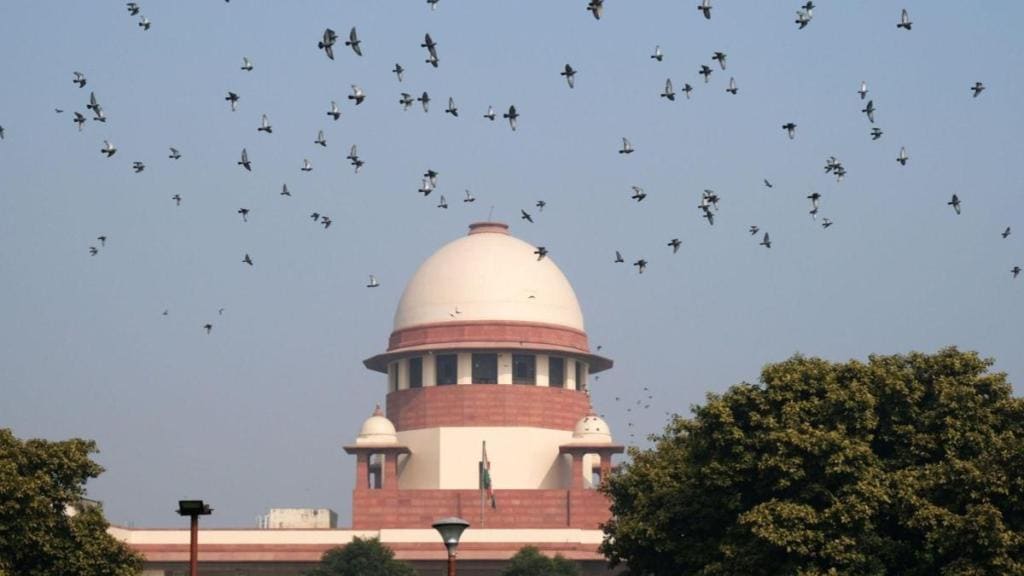The Supreme Court on Monday agreed to hear a plea filed by Ali Khan Mahmudabad, a faculty member at Ashoka University, challenging his recent arrest. Mahmudabad was apprehended on May 18 following the registration of two FIRs against him for his social media posts concerning “Operation Sindoor.”
A bench comprising Chief Justice B R Gavai and Justice Augustine George Masih acknowledged the submissions made by senior advocate Kapil Sibal, representing the associate professor. Sibal implored the court to list the matter promptly, stating, “He has been arrested for a patriotic statement. Please list it during the day.” The Chief Justice responded by assuring that the plea would be scheduled for a hearing either on Tuesday or Wednesday.
Mahmudabad’s arrest came after two FIRs were lodged against him at the Rai Police Station in Sonipat. The charges include serious offenses such as endangering the sovereignty and integrity of India. One FIR was filed based on a complaint by Renu Bhatia, the chairperson of the Haryana State Commission for Women (HSCW), while the other was lodged based on a complaint from a village sarpanch.
The HSCW had previously issued a notice to Mahmudabad regarding his social media remarks. While the professor maintained that his comments were “misunderstood” and emphasised his right to freedom of speech, the commission proceeded with a formal complaint to the Haryana Director General of Police (DGP) on May 16, urging the registration of an FIR.
According to Haryana Police, the FIR based on the HSCW’s complaint invokes several sections of the Bharatiya Nyaya Sanhita (BNS), including Section 152 (acts endangering sovereignty or unity and integrity of India), Section 353 (statements conducing to public mischief), Section 79 (deliberate actions aimed at insulting the modesty of a woman), and Section 196(1) (promoting enmity between different groups on grounds of religion).
The second FIR, stemming from the village sarpanch’s complaint, also cites BNS sections, including Section 152, Section 196 (promoting enmity between different groups on the ground of religion, race, place of birth, residence, language etc., and doing acts prejudicial to the maintenance of harmony), Section 197 (imputations, assertions prejudicial to national integration), and Section 299 (deliberate and malicious acts intended to outrage religious feelings of any class by insulting its religion or religious beliefs). Notably, all the sections under which Mahmudabad has been booked are non-bailable.
The social media remarks that triggered the controversy were annexed to the HSCW’s notice. In one instance, Mahmudabad purportedly suggested that right-wing individuals who praised Col Sofiya Qureshi should also advocate for the protection of victims of mob lynchings and the “arbitrary” demolition of properties.
The associate professor also allegedly described the media briefings by Col Qureshi and Wing Commander Vyomika Singh regarding “Operation Sindoor” as mere “optics.” He reportedly stated, “But optics must translate to reality on the ground, otherwise it’s just hypocrisy.”
The HSCW, in its previous statement, expressed concerns that Mahmudabad’s remarks appeared to disparage women in uniform, specifically Col Qureshi and Wing Commander Singh, and undermine their professional roles within the Indian Armed Forces.
Wing Commander Singh had joined Foreign Secretary Vikram Misri and Col Qureshi in briefing the media about “Operation Sindoor.”
The commission’s complaint further asserted that Mahmudabad’s social media post, while potentially appearing sympathetic at first glance to some, upon careful examination, contained language that was “completely uncalled for in the current geopolitical space and domestic security and peace concerns.”
The complaint strongly condemned his words, such as “…arbitrary…senseless death…”, arguing that the context of the statement could not be attributed to good faith, especially given the absence of a declared war by the Government of India.
The HSCW also emphasised Mahmudabad’s responsibility as an academician to exercise greater caution with his words and his use of cyberspace. It argued that his sentiments could not be aligned with the fundamental right to freedom of speech guaranteed under Article 19(1)(a) of the Constitution of India.
Furthermore, the commission’s complaint highlighted the specific mention of Col Qureshi in Mahmudabad’s statement, suggesting an intent to infuse his post with a religious identity. The commission warned that this could have significant repercussions in the current digital age, potentially leading to the promotion of enmity among religious groups and disrupting national harmony during challenging times when unity is crucial in supporting the actions of the armed forces.
Following his arrest on May 18, Mahmudabad was presented before a local court in Sonipat and subsequently remanded to two days of police custody in connection with the case filed based on the HSCW’s complaint. The Supreme Court’s decision to examine his plea offers a glimmer of hope to his supporters and raises crucial questions about the limits of free speech in the context of national security and public order. The legal proceedings in the coming days will be closely watched.
(With PTI Inputs)


